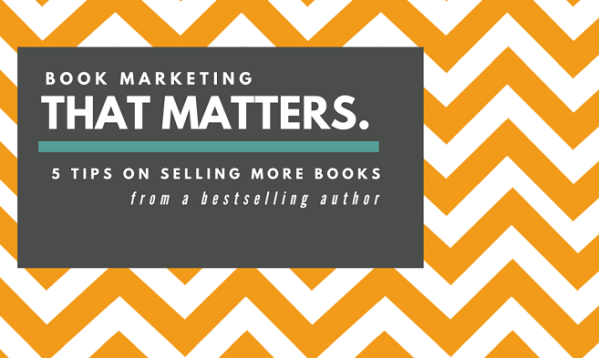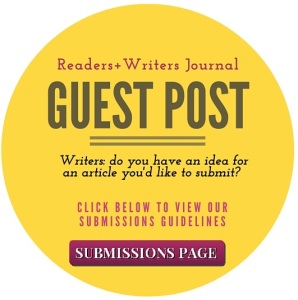 Wondering How to Sell Ebooks? Ask an Amazon Bestselling Author.
Wondering How to Sell Ebooks? Ask an Amazon Bestselling Author.
FBK is an author, ghostwriter, and consultant on writing successful eBooks who runs a writing boot camp on Facebook. Her book on crowdfunding was recently named an Amazon bestseller.
I wrote my first nonfiction eBook in late 2012. About two weeks later I published it. Since then I’ve written about 15 eBooks for myself under various pen names and I’ve ghostwritten or consulted on lots of short & sweet eBooks.
Along the way, I’ve learned a few things to say the least. I’ve learned what really matters when it comes to writing a high quality book that sells.
MAINTENANCE MATTERS.
Just today, I pulled up the first book I wrote on my Kindle and re-read it. Lawd have mercy, It made me blush and if I wasn’t in such a good mood, I might have cringed.
I wrote the book under one of my pen names (thankfully not my real name), and it was rife with errors and adorned by a garish book cover. I pulled that book, but kept the second book in the series up. For the love of pancakes, I don’t know why. I’ll pull it today and give it a maintenance checkup.
When you are in the grind of writing eBooks (note – I use the word eBook and book interchangeably), it’s easy not to look back on previously written material and provide it with the needed maintenance. You probably prefer to press forward, promising yourself that your next one will be better. Maybe it will be, but that’s not a reason to not check in on previous books. Each eBook that you write is part of your body of work and even if it is written under a pen name, it’s part of that pen name’s brand and you will be judged accordingly. Take time away from writing and perform maintenance on previous books. Re-read and update the content. Fix any mistakes.
![]() In order to stay on top of your eBook “A” game, it’s often necessary to pull a book and put it in the repair shop.
In order to stay on top of your eBook “A” game, it’s often necessary to pull a book and put it in the repair shop.
MISTAKES MATTER.
A mistake or two in your eBook is not the end of your self-publishing world. Even after you have it proofed and then edited, a mistake or two can find its way in. A simple mistake that I see a lot and that has happened to me is that after your book has been proofed and edited, you go in and change a few sentences on a whim, and bam – you forget to add the “ed” ending on a word. If a mistake or two is found in your eBook you can always pull it down and fix it, and then put the book back up.
No biggie. However, if you book is rife with errors, you’ve committed what will be an unforgivable sin in the eyes of readers.
![]() Put as many proofreading eyes on your book as possible, and hire a professional editor if you can.
Put as many proofreading eyes on your book as possible, and hire a professional editor if you can.
SIZE MATTERS.
The length of an eBook matters. When I first started writing eBooks, 10,000 words or fewer was a satisfactory length. Then it happened. Everybody and their dog started throwing tiny little eBooks up in the hope of striking it rich, which resulted in an influx of quickly and poorly written material. Readers began to catch on, and those eBooks were blasted with poor reviews. Short eBooks that are meant to solve a pain point typically sell for between 99 cents and $2.99. Readers have come to expect 10,000 words or slightly more for this price point. However, if you deliver at least 25,000 words of quality content, your perceived value will be higher than your competitors. In writing 25,000 words you don’t want to add a bunch of fluff, instead focus on adding more useful content to provide your readers with a bonus.
![]() A length of 25,000 words for an eBook and 40,000 to 50,000 words for a hard copy book works best.
A length of 25,000 words for an eBook and 40,000 to 50,000 words for a hard copy book works best.
KEYWORDS MATTER.
In order to increase your book’s discoverability and rank on search engines like Amazon, it’s important to use relevant keywords that accurately capture your book’s content, and also words that customers will use when they search. I was always puzzled about why my earlier eBooks on Amazon didn’t sell. Not one. Research and learning about keywords and search engine optimization in the book’s description has helped me sell books. Dave Chesson over at Kindlepreneur.com has a great article on choosing the right keywords for your book that will help you learn how to use keywords to sell an eBook.
![]() I can’t stress enough that choosing the correct keywords for your book is crucial to its success.
I can’t stress enough that choosing the correct keywords for your book is crucial to its success.
MARKETING MATTERS.
Boy does marketing freakin’ matter. You write the book and then you market. Wrong.
Most successful eBook authors market their book before they write it. To some, that might sound insane because how can you market something you don’t have? Well, you can. When I wrote my first eBook (and I love telling this story), I thought the millions of people who have credit cards on file at online bookstores would just buy it. Surely, at least a couple of thousand would. I seriously thought I was going to crush it. It didn’t happen. I didn’t get even one sell. Then I discovered the various ways to market my book before it was written and now I don’t always crush it, but at least now my books sell. Readers+Writers Journal’s recent article on how to market your book before you publish offers a step by step guide to pre-marketing.
![]() Marketing –before you write – matters.
Marketing –before you write – matters.
So there you have it: what really matters when you’re selling an eBook. Applying what matters to your eBooks is easier said than done, and this I know for sure. All you can do is take one day and one eBook at a time and step up your game.
Here’s to eBook stuff that matters.
FBK is a seasoned writer’s writer – whatever that means – it sounds good.
She’s “Frankie” (Franki) of the Frankie Johnnie writing team and books.
Let her mama tell it, she’s been a writer since she was 4 years old. She doesn’t recall any of her literary works from back then – lol – but she has been writing for a very long time and loving it.




